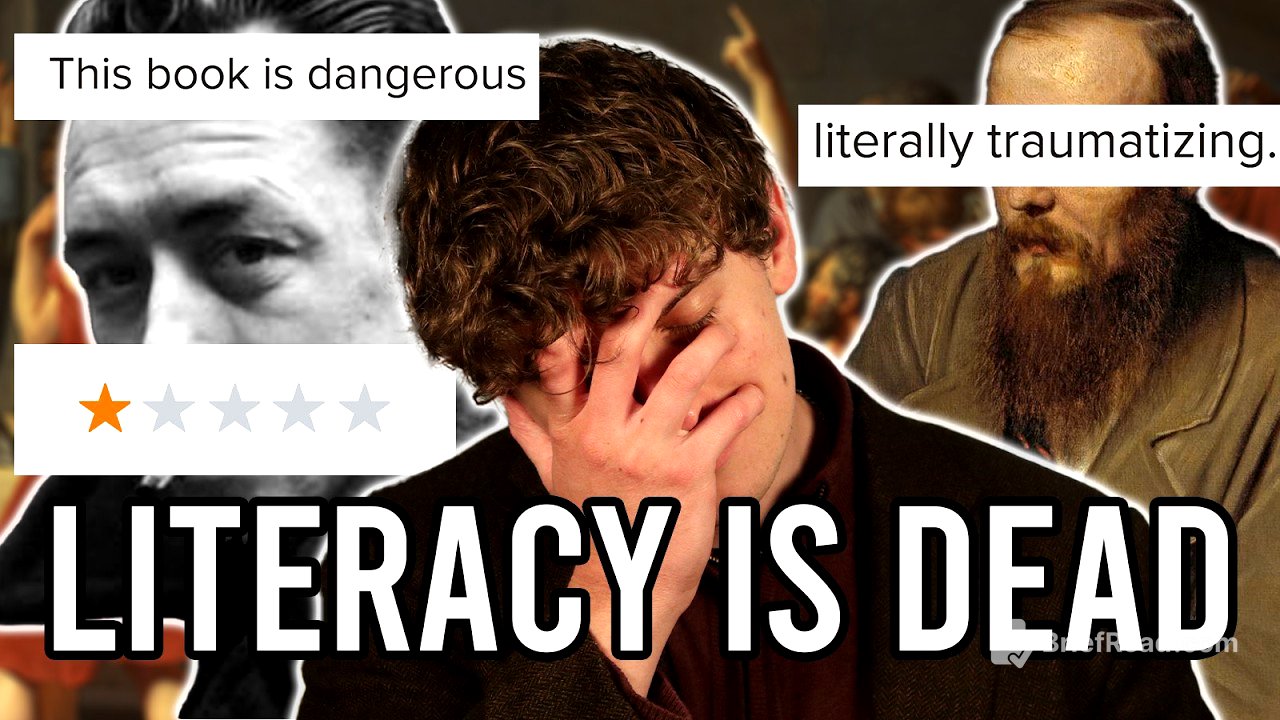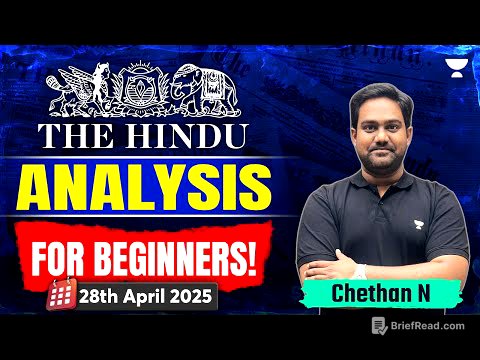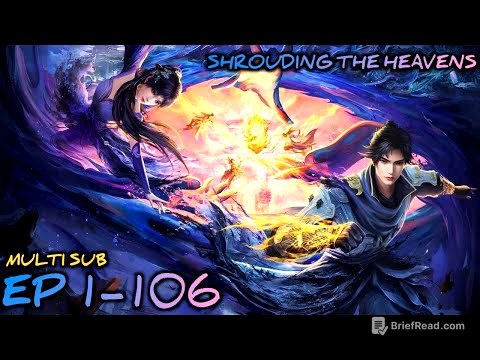TLDR;
This video explores negative reviews of classic literature and philosophy, offering insights into why some readers dislike these works and addressing potential misunderstandings. It covers books like "The Brothers Karamazov," "Blood Meridian," "On Love," "Philosophical Investigations," "The Ego and Its Own," "The Trial," and "The Plague," providing counterarguments and context to the criticisms.
- Addresses common critiques of classic literature and philosophy.
- Provides context and counterarguments to negative reviews.
- Explores the reasons behind readers' negative reactions to influential works.
Hating on Literature [0:00]
The author introduces the concept of examining negative reviews of classic literature and philosophy to understand why some people dislike these works. The author suggests that these reviews can provide astute critiques or highlight potential misunderstandings of the books.
The Brothers Karamazov [0:27]
The first review expresses disappointment with "The Brothers Karamazov," noting that nothing significant happens for the first several hundred pages. The author sympathizes with this view, acknowledging the novel's slow start but emphasizes that this initial period is used to thoroughly introduce each brother's worldview. The review also identifies the "Grand Inquisitor" chapter as the novel's highlight, which the author agrees sets up many of the theological issues explored later in the book.
Another review criticizes the characters as overly dramatic and unrealistic, leading to a reading slump. The author concedes that Dostoevsky's characters are exaggerated, often representing broader ideas or philosophies. This exaggeration, however, enhances the emotional stakes and elevates even trivial scenes, creating a unique blend of realism and melodrama.
Blood Meridian [7:22]
A review of Cormac McCarthy's "Blood Meridian" dismisses it as garbage appealing to unintelligent readers. The author disagrees, defending the novel's exploration of Gnostic philosophy and the purpose of its violence. The author admits to disliking violence in literature but argues that in "Blood Meridian," it effectively immerses the reader in the amoral mindset of the characters. The violence becomes normalized, mirroring the Glanton gang's increasing barbarity, which serves as a commentary on the nature of violence and the psychology of evil acts.
On Love [11:11]
Two reviews of Stendhal's "On Love" criticize it for focusing on infatuation rather than long-term companionship and for sounding like the ravings of a teenager. The author agrees that Stendhal primarily addresses the initial, short-term stages of love, where idealization and obsession are prominent. This focus aligns with the psychological concept of limerence. The author appreciates the book's examination of this often embarrassing stage of love, which is frequently overlooked in other philosophical works.
Philosophical Investigations [15:41]
A review of Ludwig Wittgenstein's "Philosophical Investigations" labels it as meaningless gibberish. The author counters that while the book may not offer profound insights into the human condition, its functional analysis of language has been highly influential. Wittgenstein's exploration of language games and family resemblances provides valuable tools for understanding communication and diverse forms of expression, such as satire and nuanced language styles.
The Ego and Its Own [22:06]
A one-star review of Max Stirner's "The Ego and Its Own" warns that its ideas are dangerous and may impact the reviewer's salvation. The author finds this reaction noteworthy, as it reflects an older tradition of taking ideas seriously enough to believe they can affect one's eternal soul. While acknowledging the book's pessimistic worldview and potential issues with its positive advocacy for egoism, the author appreciates Stirner's critique of moral ideals and his influence on anarchist thought.
The Trial [26:50]
An angry review of Franz Kafka's "The Trial" criticizes its bizarre, unrealistic writing and unlikeable protagonist. The author acknowledges that Kafka's protagonists are often petty and resentful, and the narrative is confusing and disorienting. However, the author argues that these elements are intentional and contribute to the story's overall effect. The reviewer's negative framing of the story's elements highlights how different perspectives can transform perceived flaws into strengths.
The Plague [29:41]
A review of Albert Camus' "The Plague" complains that the story uses a plague as an excuse to explore characters' moral decisions. The author counters that Camus' characters and their dilemmas were inspired by the reactions of people in France to the Nazi occupation, a time of intense moral crisis. The author also corrects the reviewer's misunderstanding of Camus' philosophy, clarifying that Camus' absurdism is based on reason. The author defends the exploration of moral decisions in extreme circumstances, citing examples from historical accounts and modern-day scenarios.









